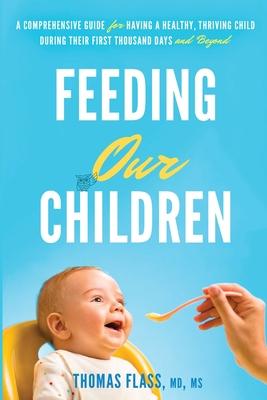Our children deserve better. The foods we eat, starting during pregnancy, can have an incredible impact on the lifelong health of a child. As the health of our children and our nation deteriorate, there is a sense of urgency. How can we protect our children and families and start making better choices for a healthy future? This book answers the question: "What should we be feeding our children?"
Feeding Our Children translates decades of experience in human nutrition, pediatrics and gastroenterology into a definitive and comprehensive resource accessible to both parents and healthcare professionals. It draws upon the latest research and work of leading experts in pediatric nutrition and medicine to provide science-based information that dispels common dietary myths and harmful practices. This book delivers credible science that guides parents through the crucial early years of feeding a child, from conception and pregnancy through school age, avoiding the pitfalls that undermine children's health and programs them for disease later in life.
This book explains in detail the impact of food on critical areas of pediatric health that have been often overlooked:
The microbiome (our probiotic intestinal bacteria)
Epigenetic programming (the ability to turn our genes on and off)
Child neurodevelopment (growing a healthy brain).
By teaching parents how to emphasize foods that support these key areas of health at each stage of a child's life, we can help prevent a number of health conditions that could affect them throughout their lifetime. Each chapter focuses on a specific stage of the child's development and answers essential questions.
- What should a pregnant mother be eating?
- How do we limit a child's exposure to toxic substances in our environment?
- How does a breastfeeding mother's diet affect her milk?
- What are the differences in infant formulas and what should a parent look for in a formula?
- How should we introduce solid foods, and which first foods are best?
- What should we feed our toddlers to prevent nutritional deficiencies?
- What is a Pediatric Feeding Disorder (PFD), and how do we recognize them early and get help?
- What foods can trigger common allergies and intolerances, and what is the difference?
- How does diet affect metabolism and the risk for developing future diabetes and heart disease?
- How can diet affect children's brains, and how can we feed them to maximize their cognitive abilities?
By answering these and other questions about early childhood nutrition, Feeding our Children empowers both parents and healthcare professionals by providing them with the resources, knowledge, and skills to navigate through this important phase of life with confidence.
